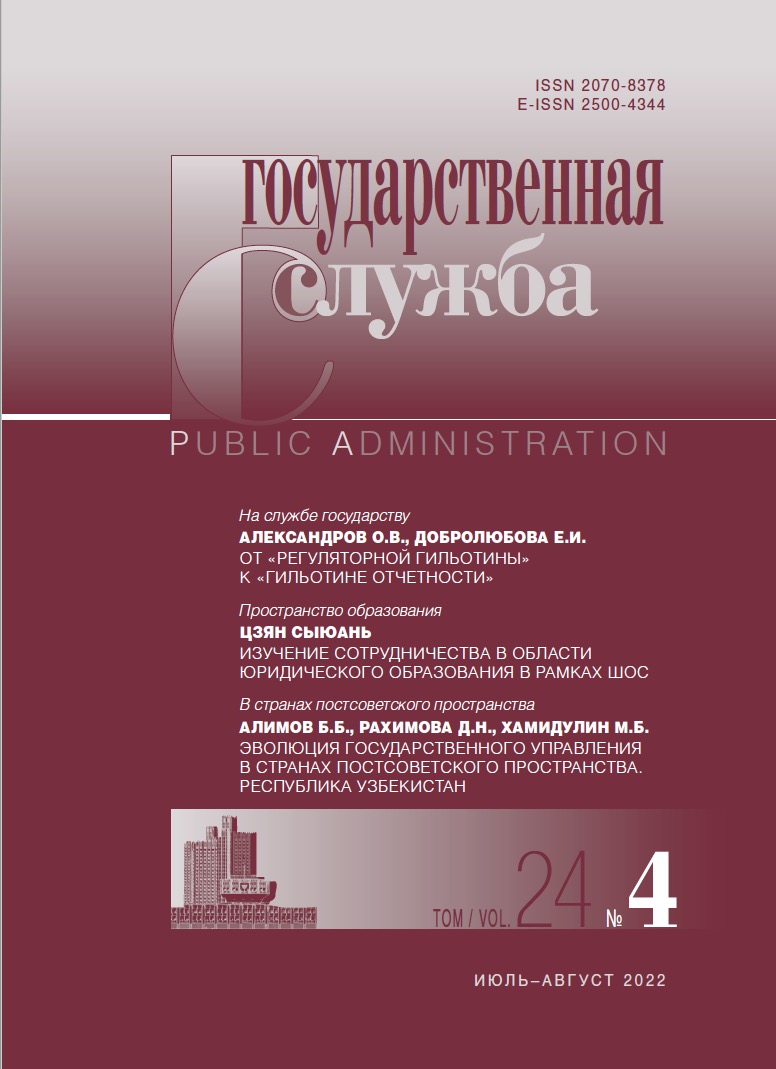Recommended link to article:
ALINA IGOREVNA BARTSITSа
аIndependent researcher
DOI: 10.22394/2070-8378-2022-24-4-87-96
Abstract:
The article outlines and analyzes the risks, opportunities and prospects for using the information and communication technologies (ICT) in education. The paper examines the results and features of the use of ICTs in education: mass character, continuity, and transboundary character; a significant increase in e-learning resources, the growth of Internet platforms and the EdTech market. The article describes limitations that hinder the use of ICTs in education, presents the main trends, and suggests ideas to develop ICTs in current conditions, internationalize education and promote Russian educational programs abroad. Overcoming the pandemic will not only reduce the relevance of discussion about the prospects for using ICT in educational process to implement the internationalization tasks. On the contrary, this discussion is based on the analysis of distance learning as inevitable and turns into a philosophical discourse on how the very future of education is seen, as well as the place and role of ICT in implementing global sustainable development goals. The use of ICT not only changes the form and organization of the educational process significantly, but also provides ample opportunities for the internalization of education, attracting foreign students to study at Russian universities. These opportunities contribute to achieving a number of political and economic development objectives. There are differences between organizing the educational process for Russian students studying directly in the building of a higher educational institution full-time or in hybrid format and teaching foreign students using ICT in a fully remote format. The work used interviews with teachers and the results of sociological surveys among students of the Department of Production and Cultural Policy of the RANEPA.
Keywords:
information and communication technologies (ICT), mass character, continuity, transboundary, MOOC (Massive Open Online Course), advantages and limitations of online education
Received:
June 12, 2022
References:
Beinhuaer H., Schmanke E. The world in 2000. Code of international forecasts. Moscow: Progress, 1973. In Russian
Kiriya I.V., Novikova A.A. History and theory of media. Moscow: Izdatel’skiy dom Vysshey Shkoly Ekonomiki. 2017. In Russian
Manako A.F., Voronkin A.S. ICT in education: evolution, convergence and innovation. Obrazovatel’nyye tekhnologii i obshchestvo. 2014. No. 1. P. 487–521. In Russian
Mau V.A., Idrisov G.I., Kuzminov Ya.I., Radygin A.D., Sadovnichiy V.A., Sinelnikov-Murylev S.G. et al. Society and the pandemic: experiences and lessons from the fight against COVID-19. https:// www.researchgate.net/publication/344821727_Obsestvo_i_ pandemia_Opyt_i_uroki_borby_s_COVID-19_v_Rossii
Pankratov I.Yu., Svertilova N.V., Lide E.N. Digital transformation: risks and threats, opportunities and development prospects (According to the materials of the Gaidar Forum-2019 «Russia and the world: national development goals and global trends»). Gosudarstvennaya sluzhba. 2019. No. 3. P. 64–74. In Russian
Toffler E. The third wave. Moscow: AST, 2010. In Russian
Zakharova U.S., Vilkova K.A., Egorov G.V. It can’t be taught online: applied specialties during the pandemic. Voprosy obrazovaniya / Educational Studies Moscow. 2020. No. 1. P. 115–137. In Russian
Articles in Open Access mode are published under the Creative Commons Attribution 4.0 International (CC BY) license.

